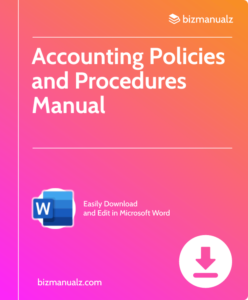What Can a CPA Do That an Accountant Cannot?

Are you confused about the difference between a CPA and an accountant? Do you know which one is best suited for your financial needs? In today’s complex world of finance, it’s important to understand the unique roles and capabilities of these two professionals. Let’s dive in and explore what sets a CPA apart and why it matters to you. What Can a CPA Do That an Accountant Cannot?
What Is a Certified Public Accountant ?
A Certified Public Accountant (CPA) is a professional accountant who has met specific education, examination, and experience requirements. CPAs have a wider range of responsibilities, including auditing, tax planning, and financial analysis, compared to regular accountants.
They are licensed to provide services such as preparing audited financial statements, filing tax returns, and offering financial advice. The CPA designation is highly esteemed in the accounting field, highlighting expertise, ethics, and accountability. To become a CPA, individuals must pass the Uniform CPA Examination and fulfill the requirements set by the state or jurisdiction in which they intend to practice.
What Is an Accountant?
An accountant is a skilled professional who manages financial records, prepares financial statements, and ensures adherence to tax regulations. They carefully analyze financial data to aid businesses in making well-informed decisions. Accountants may have a wide range of responsibilities, including bookkeeping, payroll management, and tax preparation.
They are accountable for maintaining precise and current financial records, offering financial advice, and assisting with budgeting and forecasting. Typically, accountants hold a bachelor’s degree in accounting or a related field and may pursue certifications such as Certified Public Accountant (CPA) to enhance their expertise and credibility.
What Are the Differences Between a CPA and an Accountant?
When it comes to financial management, there are a variety of professionals who can offer their expertise. Two commonly used titles are CPA (Certified Public Accountant) and accountant. While these titles may seem interchangeable, there are significant differences between the two.
In this section, we will explore the distinctions between a CPA and an accountant, including their education and certification requirements, scope of services, legal authority, and professional standards and ethics. Understanding these differences can help you determine which professional is best suited for your financial needs.
1. Education and Certification Requirements
To become a Certified Public Accountant (CPA), individuals must fulfill specific education and certification requirements. These steps include:
- Earn a Bachelor’s degree in accounting or a related field.
- Complete additional coursework to meet the specific accounting credit hours required for CPA licensure.
- Pass the Uniform CPA Exam, which consists of four sections covering various accounting topics.
- Obtain relevant work experience, typically 1-2 years, under the supervision of a licensed CPA.
- Apply for and obtain a CPA license from the state board of accountancy.
Meeting these education and certification requirements ensures that CPAs possess the necessary knowledge and skills to provide professional accounting services.
2. Scope of Services
When considering the scope of services, it is important to understand the distinctions between a Certified Public Accountant (CPA) and an accountant. Here are the main points to consider:
- Education and Certification Requirements: CPAs undergo extensive education and rigorous certification exams, ensuring their expertise in accounting and financial matters.
- Scope of Services: CPAs offer a broader range of services than accountants, including auditing, tax preparation and planning, financial planning and consultation, and representation in legal matters.
- Legal Authority: CPAs have legal authority to perform certain services, such as auditing financial statements, that accountants do not.
- Professional Standards and Ethics: CPAs adhere to strict professional standards and ethical guidelines, ensuring a higher level of accountability and professionalism.
When it comes to complex tax situations, business consulting needs, legal issues, or high-net-worth individuals, hiring a CPA instead of an accountant is highly recommended. Their expertise and comprehensive services can provide invaluable support in these situations.
3. Legal Authority
The legal authority of a Certified Public Accountant (CPA) sets them apart from regular accountants. Here are the steps that establish the legal authority of CPAs:
- Educational Requirements: CPAs must complete specific educational requirements, including a bachelor’s degree in accounting and additional coursework in accounting and business.
- Licensure: CPAs must pass the Uniform CPA Exam, which tests their knowledge and competence in accounting principles and practices.
- State Boards: CPAs are regulated by state boards of accountancy, which grant them the legal authority to practice public accounting in their respective states.
- Professional Ethics: CPAs must adhere to a strict code of professional ethics and conduct, ensuring they maintain the highest standards of integrity and confidentiality.
Choosing a CPA over an accountant ensures that you are working with a professional who has the legal authority to provide a wide range of accounting services and can be held accountable for their actions.
4. Professional Standards and Ethics
Professional standards and ethics are essential components of being a Certified Public Accountant (CPA). Here are the key steps that CPAs follow to uphold these standards:
- Adhering to the AICPA Code of Professional Conduct, which outlines ethical guidelines for CPAs.
- Maintaining independence and objectivity when providing services for clients.
- Ensuring confidentiality and protecting client information.
- Continuously updating their knowledge and skills through ongoing professional education.
- Complying with all relevant laws and regulations governing the accounting profession.
Fact: As part of their continuous professional development, CPAs are required to complete a specific number of hours of ethics education to stay current with the latest ethical standards.
What Services Can a CPA Provide That an Accountant Cannot?
While both CPAs and accountants are trained financial professionals, there are certain services that only a CPA can provide. In this section, we will discuss the various ways in which a CPA differs from an accountant in terms of the services they can offer. From auditing and attestation to tax preparation and representation in legal matters, we will delve into the specific areas where CPAs have specialized expertise that sets them apart from accountants.
1. Auditing and Attestation Services
Auditing and attestation services are essential roles performed by Certified Public Accountants (CPAs) that distinguish them from regular accountants.
- Conducting audits: CPAs thoroughly examine financial statements, records, and internal controls to ensure accuracy and compliance.
- Issuing opinions: Based on their audits, CPAs provide an independent opinion on the fairness and reliability of the financial statements.
- Assessing internal controls: CPAs assess the effectiveness of a company’s internal controls and offer recommendations for improvement.
- Performing reviews and compilations: CPAs also offer review and compilation services to provide limited assurance on financial statements or compile financial information without expressing an opinion.
2. Tax Preparation and Planning
Tax preparation and planning are essential services offered by certified public accountants (CPAs) that distinguish them from regular accountants.
- Assessment: CPAs thoroughly analyze your financial situation to identify potential tax deductions and credits.
- Record keeping: They help you maintain accurate financial records, ensuring compliance with tax laws.
- Strategic planning: CPAs devise tax strategies to minimize your tax liability and maximize your tax savings.
- Filing assistance: They assist you in preparing and filing your tax returns accurately and on time.
- Tax advice: CPAs provide expert advice on tax-related matters and help you make informed financial decisions.
True story: A client approached a CPA for tax planning assistance, resulting in significant savings by utilizing tax deductions and credits they were unaware of.
When Should You Hire a CPA Instead of an Accountant?
As a business owner or individual, you may be wondering when it is necessary to hire a certified public accountant (CPA) instead of a regular accountant. While both professionals offer financial services, there are certain situations where a CPA’s expertise may be more beneficial.
In this section, we will discuss four common scenarios where hiring a CPA would be advantageous: complex tax situations, business consulting needs, legal issues, and working with high net worth individuals. By understanding the specific areas where a CPA can provide valuable assistance, you can make an informed decision on which financial professional to hire for your needs.
1. Complex Tax Situations
Complex tax situations may require the expertise of a Certified Public Accountant (CPA) due to their specialized knowledge and training. When facing such situations, it is important to follow these steps:
- Consultation: Schedule a meeting with a CPA to discuss your specific tax situation and any complexities involved.
- Analysis: The CPA will carefully review your financial records, transactions, and relevant tax documents to identify any potential issues or opportunities.
- Strategy: Drawing on their expertise, the CPA will develop a customized tax strategy to minimize your tax liability and ensure compliance with applicable laws and regulations.
- Implementation: The CPA will assist you in implementing the recommended tax strategies, ensuring accurate and timely filing of tax returns.
- Ongoing Support: A CPA can provide ongoing support and guidance, helping you navigate any changes in tax laws or regulations that may affect your situation.
By hiring a CPA for complex tax situations, individuals and businesses can benefit from their extensive knowledge and experience, ensuring the best possible outcome while remaining compliant with tax laws.
2. Business Consulting Needs
When it comes to fulfilling your business consulting needs, a Certified Public Accountant (CPA) can offer valuable expertise and guidance. Here are some steps to consider:
- Evaluate your business goals and challenges.
- Identify areas where you require assistance, such as financial planning, budgeting, or strategic decision-making.
- Research and select a CPA with experience in your industry and specific consulting needs.
- Collaborate with the CPA to create a customized consulting plan.
- Utilize the CPA’s knowledge and skills to analyze your financial data, identify opportunities for growth, and mitigate risks.
- Implement the recommendations provided by the CPA and monitor their impact on your business.
Fact: According to a survey, businesses that engage a CPA for consulting services experience an average revenue increase of 27%.
3. Legal Issues
When it comes to legal issues, a Certified Public Accountant (CPA) has the expertise to provide specialized services that an accountant cannot. Here are the steps involved in handling legal matters:
- Assessment: A CPA can assess the legal implications of financial decisions and transactions.
- Compliance: CPAs ensure compliance with tax laws, regulations, and reporting requirements.
- Representation: In case of legal disputes or audits, CPAs can represent clients before tax authorities or in court.
- Advice: CPAs offer guidance on legal structures, contracts, and financial implications.
Having a CPA on board is essential when facing legal issues, as they possess the necessary knowledge and experience to navigate the complexities and protect your interests.
4. High Net Worth Individuals
When it comes to high net worth individuals, it is essential to hire a Certified Public Accountant (CPA). These financial experts have the necessary expertise and experience to handle complex financial situations and provide specialized services.
They can assist with tax planning and preparation, ensuring compliance with intricate tax laws and maximizing deductions. Additionally, CPAs offer tailored financial planning and consultation specifically for high net worth individuals, helping them to grow and protect their wealth. Furthermore, CPAs can provide representation in legal matters, such as estate planning and asset protection. Their comprehensive knowledge and skills make CPAs invaluable for high net worth individuals seeking professional financial guidance.
In the early 20th century, high net worth individuals such as John D. Rockefeller and Andrew Carnegie turned to CPAs for expert financial advice. These individuals understood the importance of specialized knowledge and recognized that CPAs were equipped to navigate their complex financial affairs. This historical trend established the foundation for the prominent role of CPAs in serving the financial needs of high net worth individuals today.
CPA Do That an Accountant Cannot
Although accountants and certified public accountants are both educated in finance, a CPA is the only one who can offer some services. We’ll talk about the various ways that a CPA’s service offerings differ from those of an accountant in this section. We will go into the particular areas where CPAs differ from accountants in that they have specialized knowledge, such as auditing and attestation, tax preparation, and legal representation.
Frequently Asked Questions

What Can a CPA Do That an Accountant Can’t?
A Certified Public Accountant (CPA) has passed a rigorous examination and met state-specific education and experience requirements, allowing them to provide a wider range of services compared to a regular accountant. These services include:
- Representing clients in front of the IRS
- Performing audits and reviews of financial statements
- Issuing certified reports on financial information
- Providing financial planning and management advice
Can a CPA legally provide tax advice?
Yes, a CPA is qualified to provide tax advice as they have in-depth knowledge of tax laws and regulations. They can also represent clients in front of the IRS in case of any tax issues.
What is the difference between a CPA and an accountant?
The main difference between a CPA and an accountant is that a CPA has met state-specific education and experience requirements and has passed a comprehensive exam. This allows CPAs to provide a wider range of services, such as representing clients in front of the IRS and conducting audits and reviews of financial statements.
Can an accountant become a CPA?
Yes, an accountant can become a CPA by meeting the education and experience requirements and passing the CPA exam. This process typically takes several years.
Do CPAs have to adhere to a code of ethics?
Yes, CPAs are required to follow a strict code of ethics set by their state board of accountancy. This code ensures that they maintain high standards of professional conduct and integrity in their services to clients.
Can a CPA provide financial planning services?
Yes, CPAs are qualified to provide financial planning and management services, such as creating budgets, analyzing investments, and developing retirement plans. They have a deep understanding of financial concepts and can help clients make informed decisions regarding their finances.

















Leave a Reply